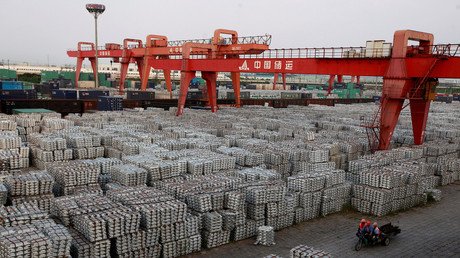Yuan oil contracts to strengthen China's currency status to compete with US dollar – analyst

As more countries pay for oil in yuan, the standing of the Chinese currency in global finance has grown, an analyst tells RT. However, its future path won’t be completely smooth, he warns.
“If people started to pay for oil in yuan, central banks would need to hold reserves in yuan, leading to a massive increase in the global demand for yuan, reducing the cost of financing the Chinese economy,” IISS Singapore Senior Fellow for Economic & Energy Security Pierre Noel told RT.
“This, in turn, is only possible if the yuan is a truly international currency. Therefore, the most likely pattern is that the shift to yuan-denominated oil trading will happen alongside the internationalisation of the yuan, which is (for the most part) a function of Beijing's monetary policy and financial regulatory decisions.”
The share of yuan-backed crude oil contracts has soared to 12 percent of global trading since the US withdrawal from the Iran nuclear deal, compared to eight percent in March, when they were launched.
According to Noel, the promotion of yuan as a leading currency will not be easy, since it is not a freely convertible currency. While the exchange rate setting has become more flexible, it is still administratively controlled, the analyst said.
“The internationalisation of the yuan could be more advanced than it is, if the Chinese government wanted it so. And the internationalisation of the currency is a key enabler of oil being paid for in yuan. Producers, consumers, traders, brokers – all need a deep and liquid foreign exchange market to manage risks,” Noel said.
For the time being, the dollar will remain as the most-used currency on the oil market, he said. “The reason oil is paid in dollars is because the dollar is the dominant international currency, not the other way around. Oil is a relatively small fraction of the total value of international trade.”
For more stories on economy & finance visit RT's business section















